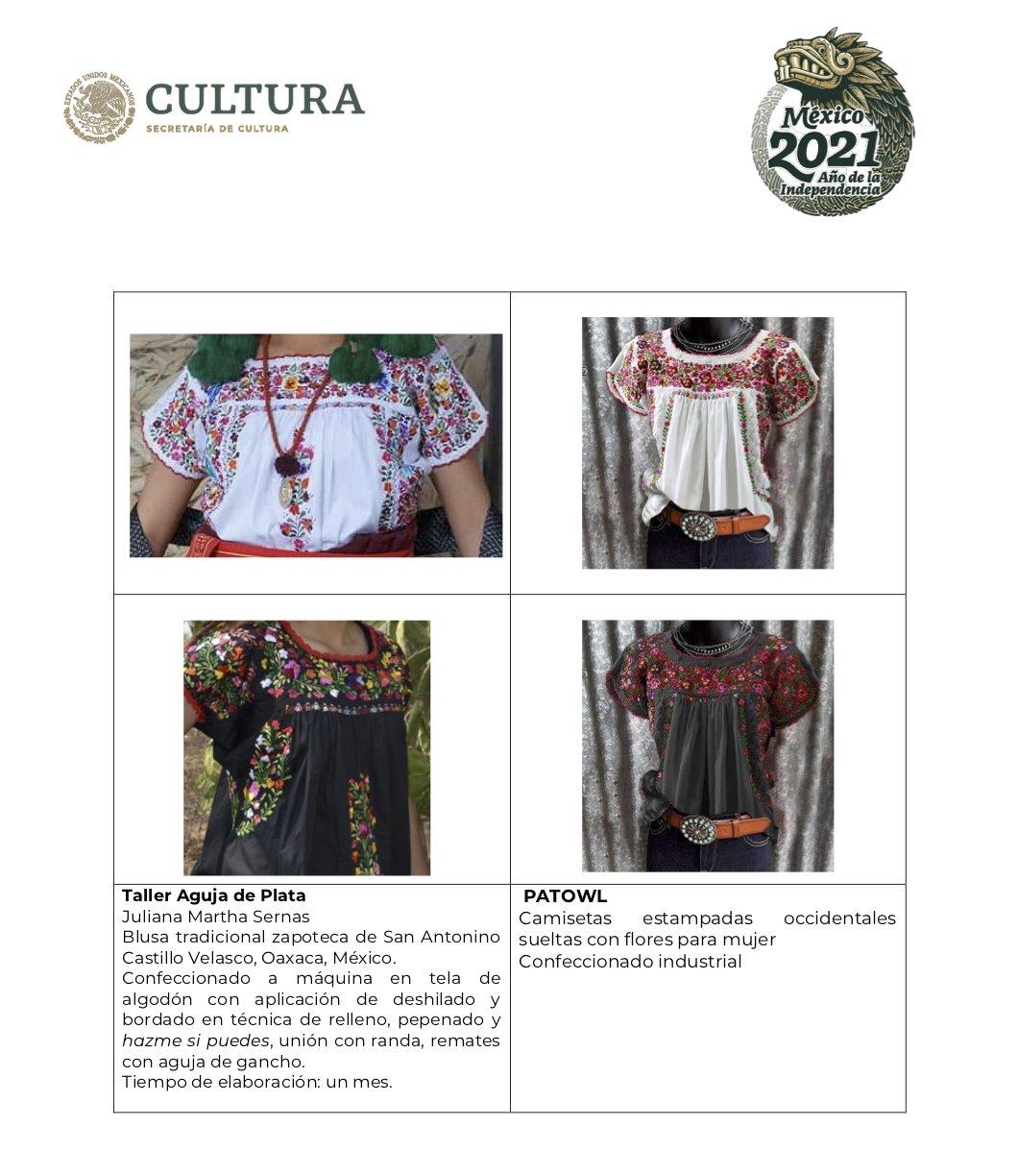Ministry of Culture accused Zara, Anthropologie and Potowl of using Oaxacan designs in their clothing collection
Once again, several international brands of the textile industry are in the eye of the hurricane when they are pointed out by the Ministry of Culture of alleged cultural misappropriation for using elements in their designs whose origin is identified in various indigenous communities in the state of Oaxaca . They are the Spanish Za ra, the American Anthropologie and the English Patowl.
In the case of Zara, the call is before the piece identified as " Midi dress with a V-neckline and short sleeves" , which takes elements from the Mixtec culture , from the municipality of San Juan Colorado.
In this place, the traditional huipil is part of the identity of women , who make each canvas from raw materials; It is woven on a backstrap loom and reflects ancestral symbols related to the environment, history and worldview of the community. Each huipil takes at least a month of work to make.
In turn, Anthropologie offers the piece " Marka embroidered shorts , from Daily Practice by Anthropologie", where distinctive and characteristic elements of the culture and identity of the Mixe people of Santa María Tlahuitoltepec are identified.
The designs are a manifestation of their identity, history and relationship with the environment. For example, they symbolize mountains, water, paths and magueyes, which are reflected in the traditional clothing of men and women.
While in the "TOPS" collection, from the Patowl company, various printed t-shirts were identified, where a faithful copy of the traditional clothing of the Zapotec indigenous people of the community of San Antonino Castillo Velasco is observed.
New Jersey Immigration Attorney Explains How to Replace a Lost Naturalization Certificate … https://t.co/vQ6QCGNgve https://t.co/6Bn9CAWCf0
— Susan Scheer Mon Sep 26 13:17:21 +0000 2016

The pieces are made by hand using the technique called “make me if you can”, a name that reflects the complexity of the production process . These pieces are part of the identity of their bearers, techniques and symbols that have passed from generation to generation. They are not just images taken of nature and the environment, but each detail reflects the feeling and historical memory of the Zapotec people.
For this reason, the Ministry of Culture, the body in charge of the preservation, dissemination and promotion of the tangible and intangible heritage of Mexico , reported this Friday through a statement that it had already addressed a letter to Zara, Anthropologie and Patowl requesting that they explain publicly on what grounds they privatize a collective property , as well as the benefits that will be paid to the creative communities.
In the letter signed by its owner, Alejandra Frausto , a call was made to the three brands to develop respectful work with the Oaxacan indigenous communities, within an ethical framework that does not undermine the identity and economy of the peoples and always in attachment to fair trade , which places indigenous creators, entrepreneurs and designers on an equal footing.
It is worth mentioning that to avoid the plagiarism of its identity elements by national and transnational companies, this institution collaborates with the Secretaries of Economy, Foreign Relations, and Environment; the National Institute of Indigenous Peoples, the Mexican Institute of Industrial Property, the National Institute of Copyright, as well as the National Human Rights Commission, among others.
KEEP READING:
VAM: the Mexican automaker that made us dream and fought face to face with Ford and Volkswagen The luxuries of Carlota, the last Mexican empress How Christian Nodal paid for the three million dollars of Belinda's ring